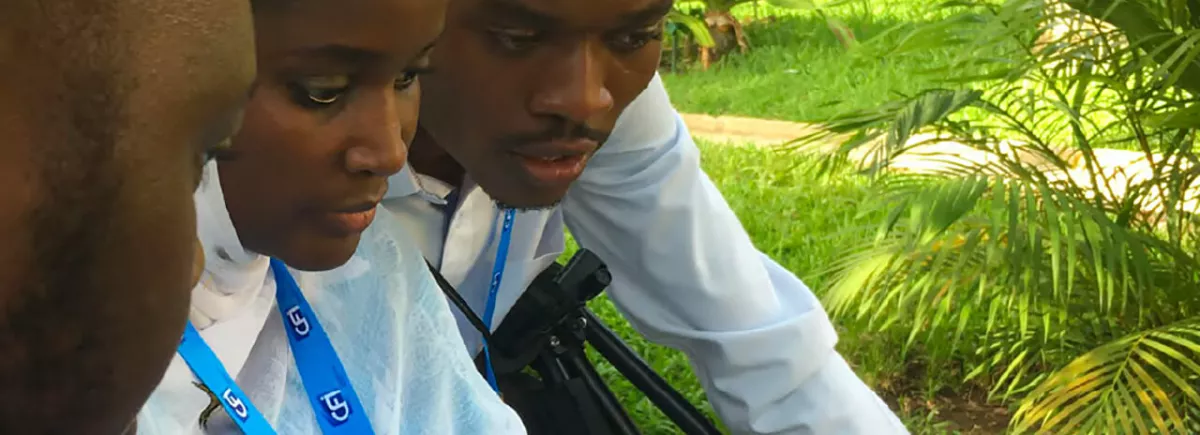
Civic tech in Africa: Example projects
Benin – Kenya – Senegal – Tunisia
Ushahidi
Created in December 2007, the online platform
Ushahidi (“Testimony" in Swahili) was originally designed as a tool to highlight the streets to avoid during the post-electoral riots in Kenya. Users could report incidents they had seen, by text message. The data was then posted on an interactive map. Since its creation, the site has been used more than 125,000 times in more than 160 countries (including during the Obama campaign in 2012). Ushahidi has mainly been used in major crisis areas: the Haïti earthquake, violence in the Democratic Republic of Congo, the Burundi elections, the tsunami in Japan, and the war in Syria.
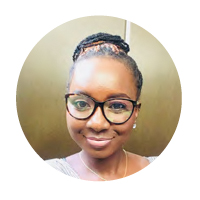 Stacy Gitau
Stacy Gitau
Graduate of
Strathmore University in Nairobi, with a passion for development technologies, Stacy is responsible for innovation at Ushahidi. Her career included a stint at iLabAfrica, where she managed various tech projects. She is an advocate of training young people to use technology (particularly mobile phones) more efficiently, and is committed to providing training and skill enhancement for women in the tech sector.
PesaCheck
The first project in Africa aimed at fact-checking and decoding government budget information, PesaCheck monitors the promises made by political figures in Kenya, Tanzania and Uganda. The project acts as an intermediary between experts who are able to decipher and analyse figures and other complex data, and the media, who have direct contact with the public, on the other hand.
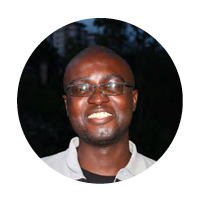 Eric Mugendi
Eric Mugendi
Passionate about technology and writing,
Eric has made fact-checking about public finance his main cause. As the chief editor of PesaCheck, he is in the front line of the fight against misinformation in Kenya, and also the rest of Africa. He defends the idea that people should not rely solely on media analysis, when it comes to understanding public data.
Al Bawsala
Al Bawsala scrutinises the work done by public lawmakers and executive bodies in Tunisia, at national and local levels. The organisation's work puts people at the heart of political action, by keeping them informed about how public funds are managed, and what the people in power are doing. The organisation's work includes compiling a directory of elected representatives, monitoring their activities and presence in the Assembly.
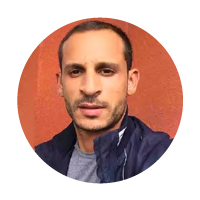 Selim Kharrat
Selim Kharrat
After working as a management consultant for various organisations in the field of international solidarity and human rights,
Selim Kharrat returned to Tunisia after the revolution in 2011. The co-founder of Al Bawsala, which he ran for two years, he is actively committed to various projects led by Amnesty International, and regularly blogs about the socio-political situation in Tunisia.
Winou Etrottoir
Originally, Winou Etrottoir (“Where's the pavement?") was a civic movement launched on the social networks to report antisocial conduct, absenteeism among people in positions of power, and the illegal use of public land caused by unauthorised building. The movement evolved into a pressure group, lobbying local authorities, before it was transformed into an association in 2016. At the municipal elections in 2018, members of the group also attended the elections under different labels.
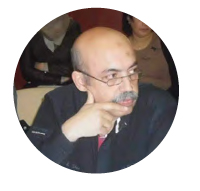 Rafik Al Falah
Rafik Al Falah
Committed to the fight against corruption in Tunisia,
Rafik Al Falah is a trained engineer, and a founding member and Secretary General of the Winou Etrottoir association. Convinced that democracy and civic engagement go hand in hand, he is an advocate of protecting public space against what he describes as attacks by shopowners illegally occupying pavements and other pedestrian areas, with complete disregard for the law.
Tunisian Association of Public Controllers (ATCP)
Since its formation in 2011, the
ATCP has paid great attention to the fight against corruption and the misuse of public funds. It was behind the first national website to publish official data on public projects (cabrane.com). The website and app provide official information about public contracts, classified by category. The data is gathered from ministries, governorates and other local authorities.
This gives web users access to information about the cost of a project, the progress of the works, the contractor, and the completion date.
 Charfeddine Yakoubi
Charfeddine Yakoubi
Member of the executive office of the Tunisian Association of Public Controllers (
ATCP) and project leader at Cabrane, Charfeddine Yakoubi has decided to work towards greater transparency within Tunisian
administrations. He believes that transparency in the management of public funds will help to build a climate of confidence between public authorities and their citizens.
Barr al Aman
Barr al Aman is a play on words in Arabic. When read quickly, it becomes “barlamane" (“parliament"). The association hopes to improve public policies through the media. Its activities include a weekly radio broadcast, which is aired on national Tunisian radio. The programme gives a realistic, publicfocused account of issues related to decentralisation and local elections, but also deals with administrative procedures, the functioning and malfunctioning of State institutions.
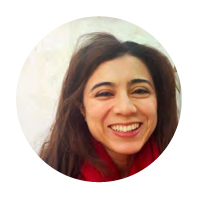 Khansa Ben Tarjem
Khansa Ben Tarjem
Khansa Ben Tarjem, a Tunisian journalist and reporter, was one of the founders of Barr al Aman in 2013. She deals with the current political and social affairs in Tunisia, with a particular focus on security issues. She has worked as a freelance journalist for Le Monde Afrique, Inkyfada and Reuters TV.
Les cahiers de Ganiath
Les cahiers de Ganiath is a blog that works to uncover and offer visibility to the owners of innovative projects in the field of digital, culture and enterprise. Armed with her smartphone, the blog's author turns the spotlight on young people from Benin who have a real desire to forge their own destinies. The young entrepreneurs share details of their work, their motivations, and their ideas on how to fight the issues generally encountered by startuppers in Benin.
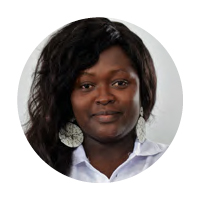 Ganiath Bello
Ganiath Bello
A journalist with a passion for writing and literature,
Ganiath Bello currently works for the webTV channel of the Université of Abomey-Calavi. In 2014, she decided to set up her own blog, posting content about children's rights, the promotion of women, and culture. Starting from the premise that traditional media only deals with political subjects, she set herself the target of giving a voice to ordinary people working with limited means to improve their daily lives and have a positive influence on their communities.
VOA Citoyennes
The association Voix et Actions Citoyennes ( VOA Citoyennes - Citizens' Voices and Actions) aims to use the digital world to strengthen young people's commitment to improving local and public governance. To achieve its objectives, this newly-launched organisation runs training sessions on digital literacy. It also conducts advocacy initiatives, promoting the efforts of young people involved in monitoring public actions.
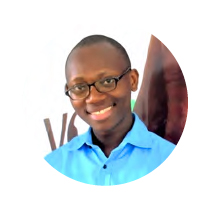 Antoine Osé Coliko
Antoine Osé Coliko
A legal expert specialising in cases of violence against girls and women,
Antoine works with various associations. Committed to projects to train young people to engage actively and responsibly in civic issues, he thinks that civic engagement is of vital importance in building a harmonious society. His dream is to see a generation of citizens who know their rights, and also their duties, not only in Benin but across the whole continent.
Transparencevote 229
Launched in July 2017 by a team from YALI (Young African Leaders Initiative) in Benin, #transparence229 aims to improve young people's contribution to achieving a transparent, fair electoral process. Its actions include: producing a report evaluating systems designed to guarantee a fair, transparent electoral process in the wake of the 2013 Electoral Code. The campaign has also trained 90 young people from Benin on the principles of transparency and integrity in the electoral process.
 Franz Okey
Franz Okey
Franz Okey, a project management engineer, is active in civil society with a particular focus on issues of governance, civic engagement and democracy. As a holder of a scholarship from the Young African Leaders Initiative (YALI) initiated by former US President Barack Obama, Franz brings together other beneficiaries of this programme, to work on various projects related to transparency and accountability of the public executive, relying in particular in information and communications technologies.
Save Dakar
Using photo reportage and social media publications, Save Dakar alerts public opinion to the damage caused by laxity and the lack of public spiritedness in Dakar. The collective is raising awareness of the importance of respecting public assets and property. This participatory project operates by photographing examples of antisocial behaviour (squalor, illegal occupation of streets, motoring offences) and launches a debate about the reported cases. Some of its publications regularly receive responses from the authorities, who are keen to resolve the issues reported.
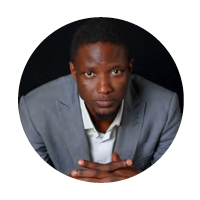 Mandione Laye Kébé
Mandione Laye Kébé
A photographer and infographist from Dakar,
Mandione Laye Kébé focuses on civic engagement, respect for public property, and for the environment. With the Save Dakar project, he brings together contributions and discussions from thousands of his fellow citizens, on the topic of personal responsibility for protecting the environment and safeguarding property. In addition to his online work, Mandione is also behind operations to clean up beaches, schools and streets in the residential areas of Senegal's capital city.
Rufisque Tech Hub
A “third place" based in Rufisque, 25 km east of Dakar, the Rufisque Tech Hub aims to boost local democracy thanks to the bonds that link the web and social networks. To achieve its objectives, the association promotes use of the internet and of the new communication tools. Its activities include conferences, internet and social media induction courses, and live broadcasts of municipal council meetings.
 Alexandre Guibert Lette
Alexandre Guibert Lette
Journaliste, blogueur et cyberactiviste, Alexandre Guibert Lette est cofondateur du
Rufisque Tech Hub. Il milite pour une plus grande implication des jeunes dans la vie politique. Il est convaincu que l'utilisation d'internet et de ses fonctions communautaires permet de nourrir le dialogue entre citoyens, mais aussi entre les citoyens et les décideurs politiques.
Elle citoyenne
Originally an individual blog, Elle citoyenne has now evolved into a platform where people can share information and experience, mainly run by and for women. Around forty volunteer contributors, both male and female, seek to promote the actions of ordinary people working for the good of their communities. The site also receives suggestions from ordinary people in response to the social and political issues seen in African countries.
 Anne-Marie Befoune
Anne-Marie Befoune
A translator by trade, and committed to civic engagement issues,
Anne-Marie Befoune found the internet to be an easy way to get people's voices heard, and to have their contributions included in decision-making processes. She believes that an ideal society is one in which every member of the public is aware not only of their rights, but also of their duties. This translates into personal involvement in the implementation of change, without necessarily waiting for reform to be done by the people in power.


